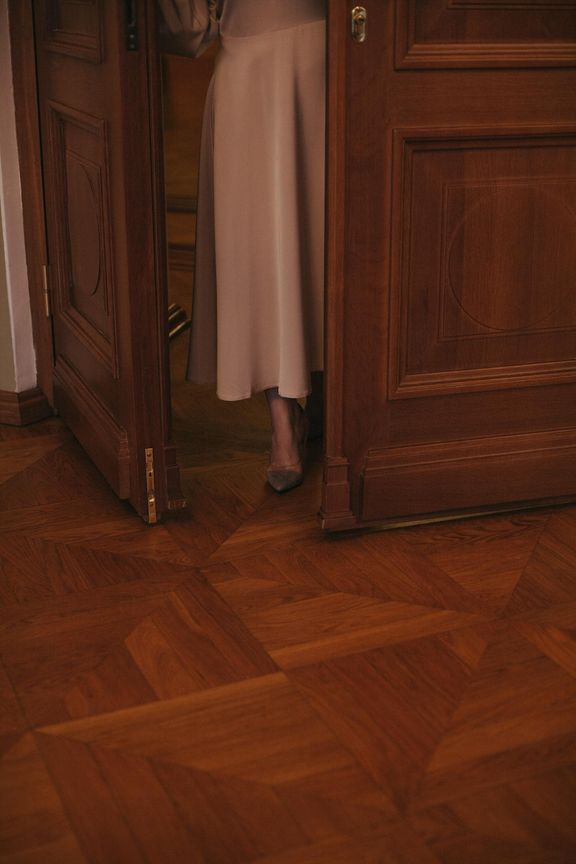After raising her granddaughter alone following the death of her son, June thought the hardest days were behind them. But when her former daughter-in-law suddenly reappeared with a designer gown and an envelope, she discovered that some people were even worse than she imagined.
Sixteen years ago, when I was 56 and still bouncing between cramped rental apartments, my son Mark achieved something I never could.
At 29, he bought a modest one-story house for his wife, Melissa, and their little girl, Emma. He was a construction worker with calloused hands and big dreams.

“Mom,” he told me over coffee in that tiny kitchen, “I want to add rooms, build a porch, maybe even put up a swing set in the backyard. I’ll even make you a room over the garage, too.”
I was so proud. Because this was a big milestone, he’d drawn up a simple will, just in case. If anything happened, the house would go to Emma.
But before his dreams could unfold, a construction accident stole his life. Emma was only two years old.
At the funeral, I clutched Emma’s small hand while Melissa greeted people coldly. Once we were back at the house, I caught her packing her suitcase. She was 27 then.
“Take care of her,” she muttered, throwing her set of house keys at me. Outside, she got into a luxury car with a smiling man and drove away, leaving Emma and me standing in the driveway.
That was the last time I saw her.

I moved into Mark’s house with Emma and worked every job I could find to keep the mortgage paid and food on the table. I cleaned homes until my knees ached, babysat neighbor kids, and waited tables at a diner until my feet swelled.
Time passed. I aged into my 70s with a back that ached every morning, but Emma grew into a beautiful young lady—kind, thoughtful, and never asking for much.
Still, I knew all high school girls wanted something for prom.
A few weeks before, I asked if she planned to go. She shook her head. “We can’t afford a dress anyway,” she said softly.
The next day, I found soft blue satin fabric at a local vintage shop. That night, after my shift, I dragged my old sewing machine to the kitchen table and began working on her gown. Emma protested, but I wasn’t too tired to make her happy.
I poured love into every seam.

The night before prom, she tried on the dress and whispered, “It’s the most beautiful dress I’ve ever seen.”
Then a sharp knock rattled the front door.
I opened it and froze. Melissa stood on our porch, smiling brightly. She swept inside uninvited, holding a glossy garment bag.
“My baby girl!” she exclaimed, pulling Emma into a hug. Emma stood stiff.
With a flourish, Melissa unzipped the bag and revealed a glittering silver gown—worth more than I made in three months.

“You can’t wear that,” she scoffed at the homemade dress. “Everyone will laugh at you. Here—this is a real dress for prom.”
Before I could speak, an envelope slipped from her purse. Emma picked it up. Her name was written on the front.
Inside were legal papers—official documents.
“What is this, Melissa?” I asked.
She hesitated, then said, “Sweetheart, this house was meant for us. Your father bought it for our family. If you sign those papers, I can sell this place and put us somewhere better. Somewhere glamorous.”
The room went silent.

Emma’s hands trembled, but her voice didn’t. “You think a dress makes you my mother? Grandma raised me. Alone. And you think you deserve this house?”
“Sweetheart, that’s not—”
“You left me,” Emma said. “Now you need money. But this is my house. Grandma is my family.”
Then she tore the papers to shreds.
Melissa’s smile twisted into rage. “Ungrateful brat,” she hissed. She grabbed her purse and stormed out, heels clattering, slamming the door behind her.
Emma threw her arms around me. Relief washed over us both.

The next evening—prom night—Emma smoothed her blue dress and smiled. “Ready, Grandma?”
I dropped her off at school. Hours later, a friend drove her home. Her curls were loose, her mascara smudged, but she was glowing.
“I was the most beautiful girl there,” she whispered. “Because of you.”
We sat on the porch while she told me everything. Her friends loved the dress. She danced all night.
“This was the best night ever,” she said.
She had a partial scholarship to study architecture and would stay living with me. After all the sacrifices, I had raised another good kid—someone who didn’t care about money or appearances.
This was her house. Our house.
And I hoped Melissa never came back.



